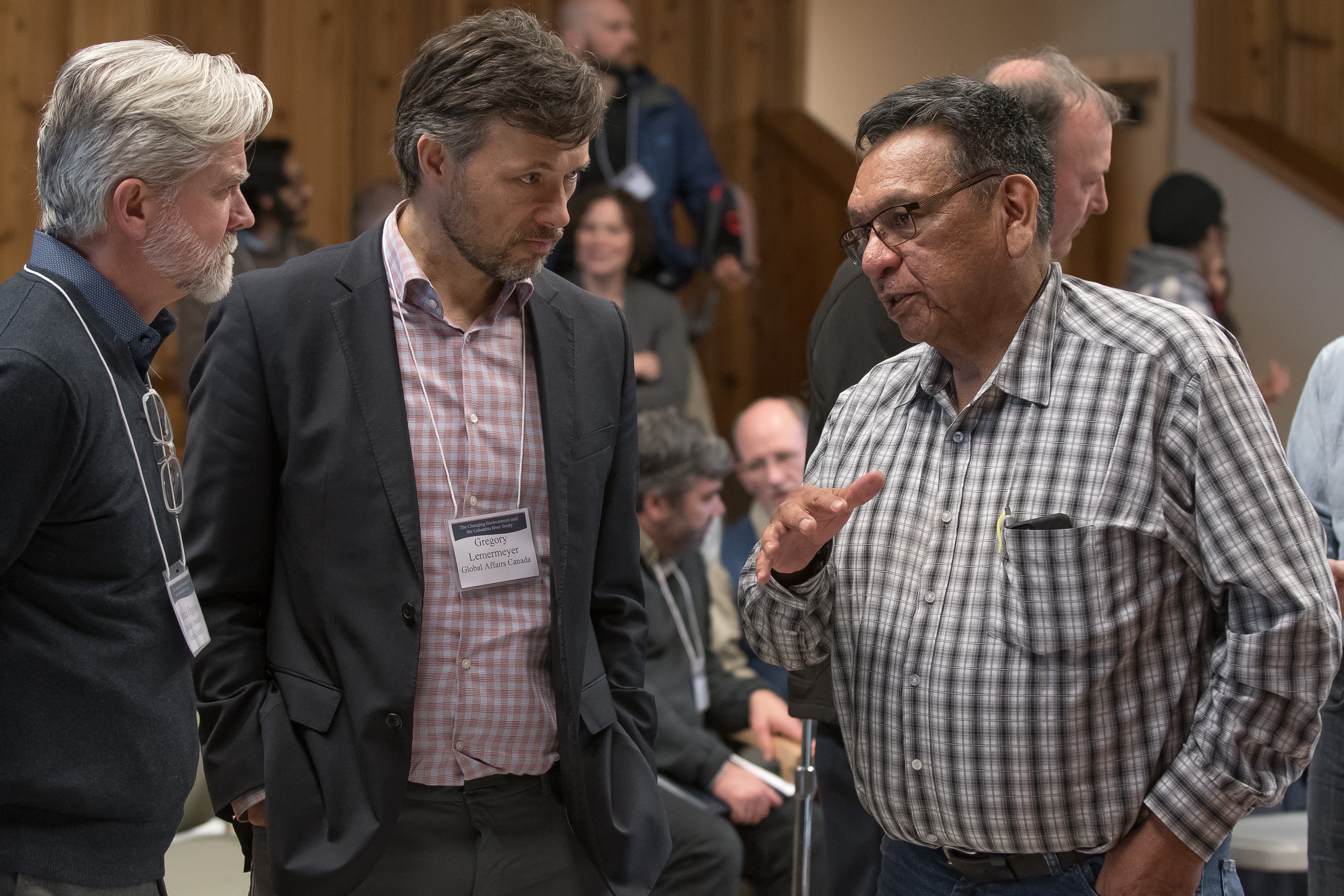Half a century ago, the governments of the United States and Canada worked out how to harness the power of the Columbia River to generate electricity and control flooding in the river basin.
The vast network of dams and hydroelectric plants throughout the Pacific Northwest has created enormous economic benefits in both the U.S. and Canada. But longstanding concerns persist over the dams’ effect on the environment and local communities and tribes, issues that weren’t addressed in the original treaty.
But as the U.S. and Canada negotiate to “modernize” the 1964 treaty, they’ll address more than flood prevention and maintenance of the region’s electrical supply. They’ll consider how the dams influence the ecosystem—even more so as climate change progresses. They’ll also address the cultural and financial losses to communities that were drowned out when the rivers rose.
In February, Western collaborated with Northwest Indian College to host a two-day symposium on the Columbia River Treaty, designed to include equal representation from tribes, First Nations, government agencies, and non-governmental organizations on both sides of the border.
“The symposium marked a meaningful and concerted effort to include the voice of indigenous people,” says Laurie Trautman, director of Western’s Border Policy Research Institute.
“The lead negotiator from the Department of State, who will be responsible for incorporating the voices of those left behind during the initial negotiations, was at the table to hear these voices,” Trautman says. “Western and NWIC provided a neutral ground for this incredibly important dialogue, which advances multiple ways of knowing, and will likely affect generations to come.”
